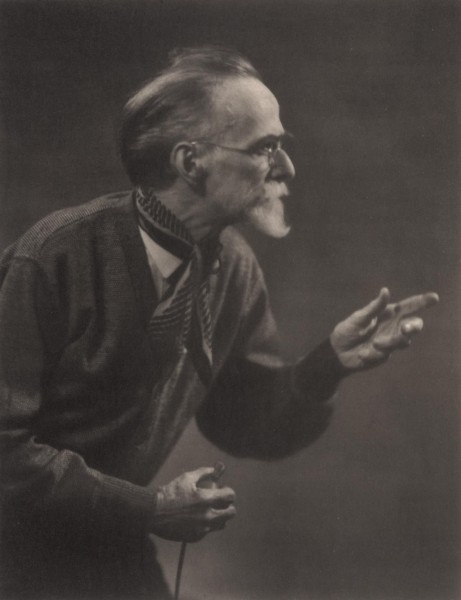Dr Julian Smith: surgeon and photographer
One of East Melbourne’s more notable residents was Dr Julian Smith: a remarkable man, famous in two very different fields, surgery and photography. Born in England in 1873, he arrived in South Australia with his family three years later. He studied medicine at Adelaide University but had to transfer to Melbourne when all the instructing medical professionals resigned. Through his life he worked at the Royal Melbourne Hospital and St Vincent’s as well as in private practice. Amongst his many achievements was the invention of a pump for transfusing blood direct from donor to patient. This turned out to be a very useful tool during WWII.
As well as being a leading surgeon Julian Smith was a world-renowned photographer. He was best known for his portraits many of which are now in the National Gallery of Victoria. One is of Oscar Hammerstein II. The subject of this particular portrait has an interesting, if slightly tenuous, connection to East Melbourne. In 1929 Hammerstein had married Dorothy Blanchard, daughter of Captain Henry James Blanchard, a Port Phillip sea-pilot, and his wife, Marian Blanchard (nee Parmenter). Mrs Blanchard owned and managed a small block of flats at 99 Hotham Street in the 1920s. However, Oscar and Dorothy did not meet in East Melbourne. Dorothy, an aspiring actress, already married and divorced once, and having just been nominated third most beautiful woman in Victoria in The Herald Beauty Quest, set off overseas in 1922. The two were already married when she made her first trip back to Australia with her husband in 1930, the same year that Julian Smith photographed him.
Many of Smith’s photographs were character studies where capturing the likeness of a real person was not as important as creating a fanciful persona. One photo, for instance, shows a young boy acting as Oliver asking for more, another shows a man dressed as Captain Cook contemplating a globe as he plots his next voyage, yet another is of a clown in full costume smoking a cigarette between acts. The actors are unidentified.
In reference to William Dobell’s Archibald Prize winning portrait of Joshua Smith (no relation) Max Meldrum is quoted as saying, “A portrait cannot be good if the subject's wife fails to recognise it.” Julian Smith’s response was, “I have long given up trying to please subjects' wives."
Dr Smith died in 1947 at 36 Powlett Street, his home of many years. The then prime minister, Mr R G Menzies, said of him, ‘The late Julian Smith was a man of untiring curiosity of mind, amazing craftsmanship, great abilities and a most lively personality.’ And that he understood our “world of turbulent human emotions, of occasional ugliness but more frequent beauty.”
This article first appeared in the Inner City News of October 2023

